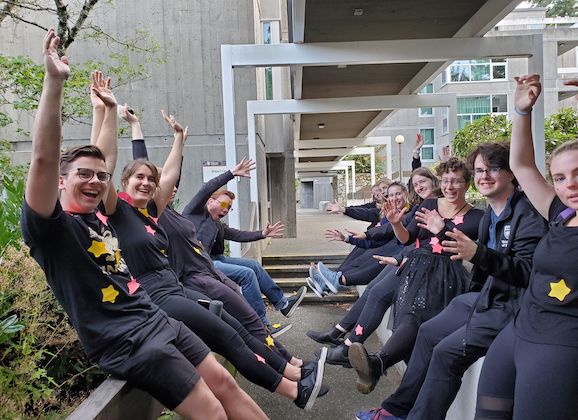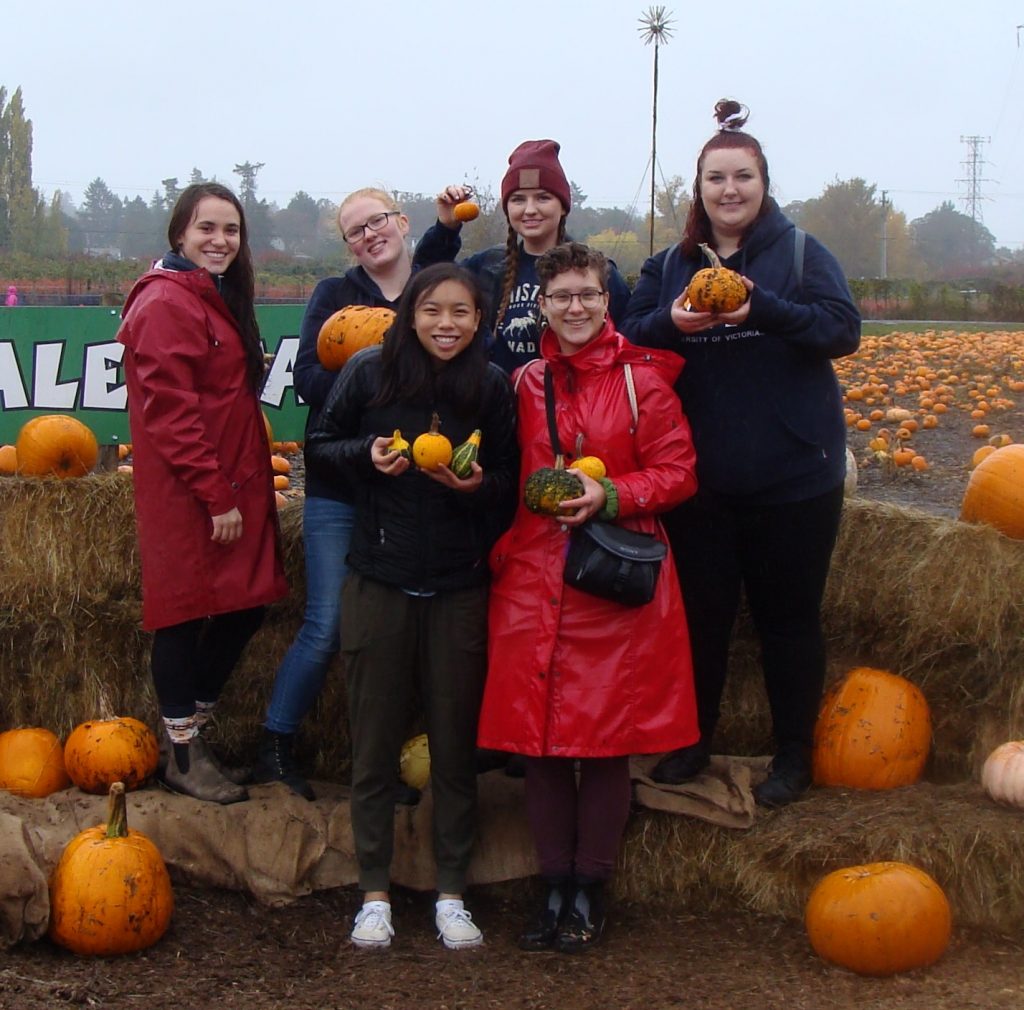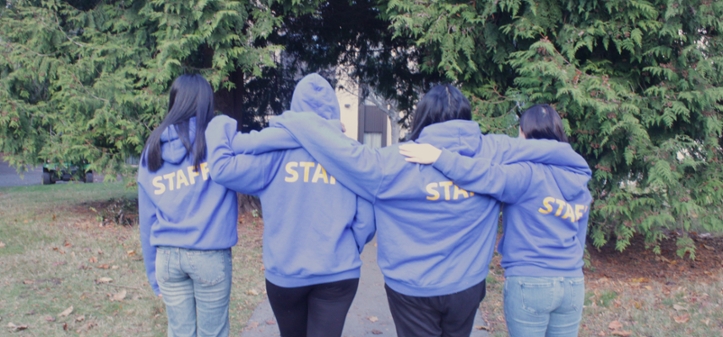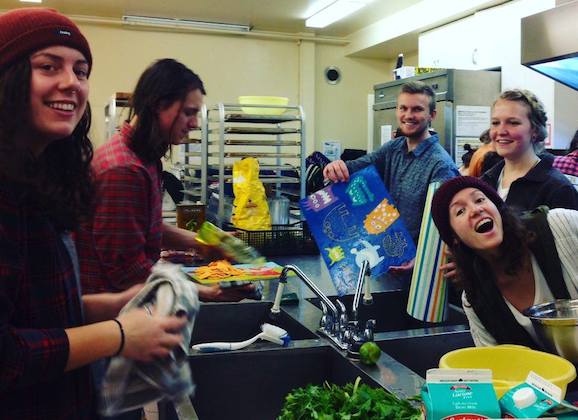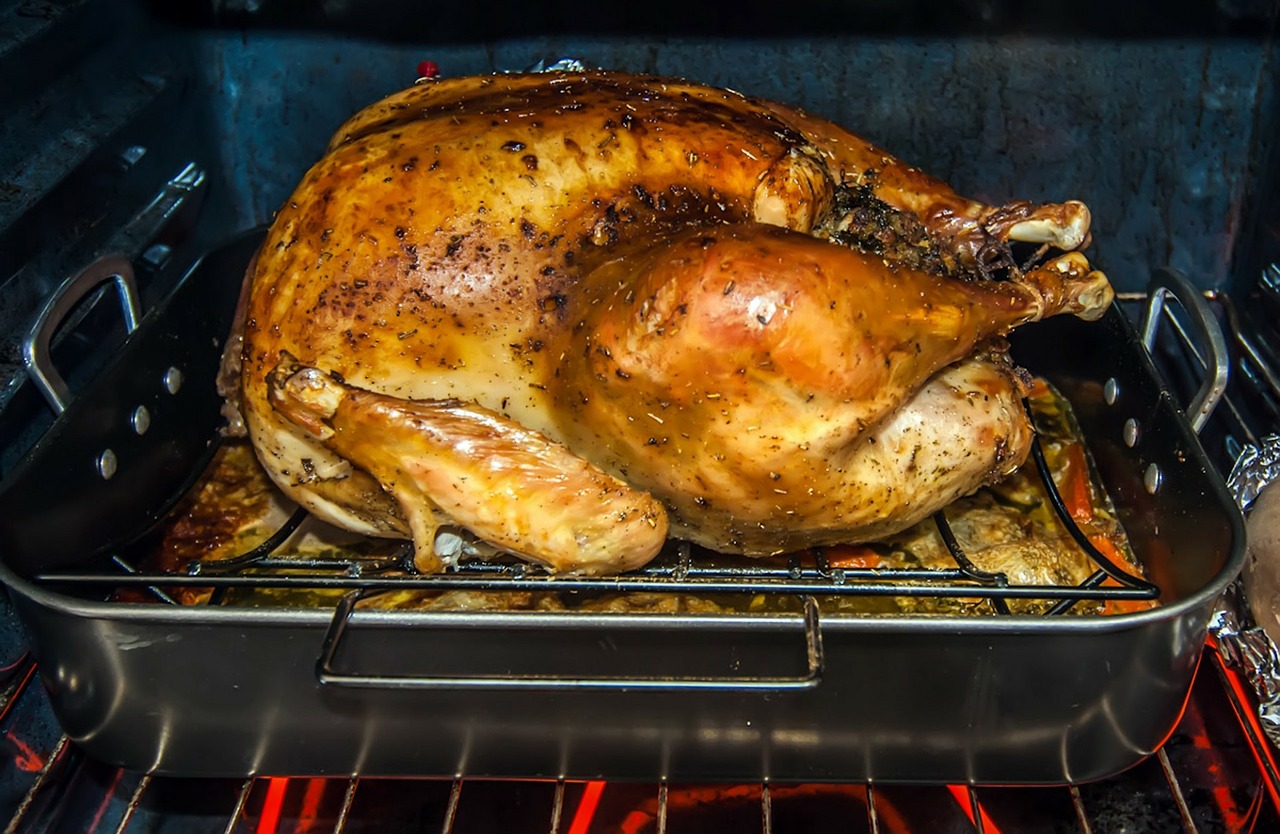Everything you need to know about being a Community Leader
Applications now open for student staff positions in the 2023-24 academic year. Attend an info session Jan. 25 (info below) and apply by February 7, 2023.
1. What is a Community Leader?
A community Leader (CL) is an undergraduate student who lives and works in residence at UVic. There are a variety of different types of CL positions available. The most common position is a CL in a traditional style dormitory building.
A Residence Education Community Leader (RECL) also lives in a traditional style dormitory building and they work in a community called a ‘Living Learning Community’ (LLC). An LLC is catered towards a specific faculty or speciality. This could be Engineering, Fine Arts, Indigenous studies or French LLC. Each year the Living Learning communities change in accordance with student interest.
A RCL’s job is to plan events for their community that correspond with the theme. This creates an education-oriented environment where residents living there have the opportunity to connect and interact with other students in their faculty.
There are also Cluster CL’s who live and work in the Cluster Neighbourhood. What differentiates them from other CL’s is the type of housing they live in. The Cluster neighbourhood is made up of town houses and apartment style complexes.
Despite the slight variation between each type of CL, all of the job positions share the common goal of creating a safe and welcoming community for all students living in residence at UVic.
2. What is the work that a CL is expected to do?
There are several different tasks that a Community Leader is expected to do as a part of their job requirement. These tasks can be broken up into three categories:
- community building and programming,
- peer support, and
- upholding community standards
Community building
The most important role that a CL has is creating a welcoming living environment for the residents in their building. This is done through programming and includes active programs, passive programs and community connections.
Active programs
Active programs are events organized by the CL’s. Some examples of an event include: a community picnic, a movie night in a lounge, a campus scavenger hunt or a trip downtown. All of the expenses of these events are paid for by Residence Services, not the CL or the residents.
Passive programs
A passive program is a poster or flyer that the CL creates and displays in their community for the residents to see. This could be something like a poster about managing academic stress, or a flyer about managing finances or how to navigate healthy relationships.
Passive programs are often focused on well-being and mental health. A community connection is the final type of programming. These are meant to create positive interactions between Community Leaders and their residents. A community connection could include personalized notes of encouragement, goodie bags or smaller scale events like a game night with a group of residents.
Peer support
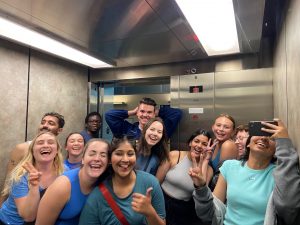
CL’s support the residents in their community through peer support. A couple times a semester CL’s have check in’s with individual residents to see if they have any concerns or need any emotional support.
CL’s are not expected to be therapists or academic advisors, but they do have the resources to direct residents towards the supports that they require. CL’s also create positive connections with residents by being present in their community and interacting with the students who live there.
Upholding standards
The final job of a CL is to uphold the standards in the community in which they live. They do this by working “In-Nights”.
During an In-Night, a group of CL’s do rounds of the building they live in or, if they live in the Cluster neighbourhood, walk around outside. The main objective is to ensure that residents are being quiet during quiet hours, respectful towards other students in the residence and are not engaging in any harmful or dangerous activities.
If any of this behaviour is occurring the CL’s on duty remind them of the community standards and call Campus Security (CSEC) if extra support is needed. Afterwards they write a report about the incident which is submitted to Residence Services so that they can conduct any follow up if needed.
CL’s are not expected to deescalate any dangerous situations; that is the job of the CSEC officers or Saanich Police.
3. Is a CL a paid position?
CL’s are a part of the CUPE 4163 union. The gross pay is equal to the full cost of room and board spread over 17 pay periods.
This means that a traditional CL who lives in a dormitory building has the cost of their room covered as well as their meal plan. If you are working for one semester, the cost of your room and food is covered for that semester. If you are working for the whole year, the cost of your room and food is covered for both semesters.
A Cluster CL who lives in a townhouse or apartment style home has their housing cost covered, but they do not have access to the meal plan. Instead they are paid a reasonable sum each month to cover their grocery costs.
4. Is there any support for Community Leaders?
 Community Leaders are not expected to deal with everything on their own — after all, they are students just like the residents who they are supporting. When a CL needs someone to talk to about a stressful event or requires feedback about an area of their work they can go to a Senior Community Leader (SCL) or a Neighbourhood Manager (NM).
Community Leaders are not expected to deal with everything on their own — after all, they are students just like the residents who they are supporting. When a CL needs someone to talk to about a stressful event or requires feedback about an area of their work they can go to a Senior Community Leader (SCL) or a Neighbourhood Manager (NM).
For each neighbourhood on campus there is an assigned SCL and NM. A SCL is an upper year undergraduate student or graduate student who has had previous experience as a CL. A NM is a professional residence services staff member.
SCL’s and NM’s are there to support the Community Leaders with any job related issues they may have. They are accommodating and understanding and recognize the importance of balancing school, work and social engagements.
5. How and when should I apply?
For anyone who is interested in applying to become a CL, but they want to know a little more, you can attend an information session on January 25th from 5:30-7:30pm in the Multi-purpose room located on the second floor of the Cove dining facility.
There will be current CL’s there to answer any further question you may have about this job. Once you are ready to start your application you can go to the housing portal on the UVic website and find the employment application for the 2023/2024 school year.
On the application it will ask you to upload your resume and then answer some job related questions to determine if you will be a good fit for this position. The deadline to submit your application is February 7th. Once all the applications have been reviewed successful candidates will be contacted to do an interview which will likely take place online.
6. If I get hired, how should I prepare for the job?
All you have to do to prepare for being a CL is show up for training. There are training sessions held in August and January for all new and returning staff members. Here you will learn about how to use your current skills to succeed as a Community Leader. Additionally you will have to opportunity to connect with other CL’s and form meaningful connections.
7. Is becoming a Community Leader a worthwhile job?
Choosing to become a Community Leader in my second year of University was an excellent decision. While I would highly recommend this job, it does require a lot of commitment. 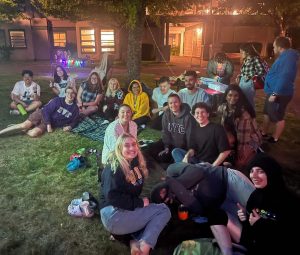
If you are hesitant to meet and talk with new people then this may not be the best position for you. However I have noticed that my openness to engage with others and my confidence interacting with people has improved because of this job.
Additionally, I have made so many new connections because of this role, all of whom are striving to make UVic and student life a more welcoming environment.
Check out these blog posts from a past Community Leader!

